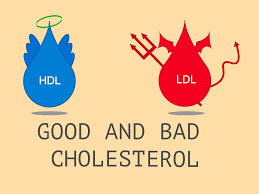
Kolestrol yüksikliği yaşlılarda kalp hastalığına sebep olmamakta, statin gibi kolesterol düşürücü ilaçların kullanılması vakit ve nakit kaybıdır. British Medical Journal'de yayınlanan 70.000 kişi üzerinde yapılan araştırmaya göre 60 yaş üzerindeki kişilerde kötü kolesterol ile prematür ölümler arasında bir ilişki kurulamamıştır. İncelenen yüksek kolesterollü yaşlıların %92 si daha uzun yaşamıştır. İrlanda Üniversitesi profesörlerinden Sherif Sultan'a göre kolesterolü ilaçlarla düşürmek tamamen israftır.
Lack of an association or an inverse association between low-density-lipoprotein cholesterol and mortality in the elderly: a systematic review
http://dx.doi.org/10.1136/bmjopen-2015-010401
Abstract
Objective It is well known that total cholesterol becomes less of a risk factor or not at all for all-cause and cardiovascular (CV) mortality with increasing age, but as little is known as to whether low-density lipoprotein cholesterol (LDL-C), one component of total cholesterol, is associated with mortality in the elderly, we decided to investigate this issue.
Setting, participants and outcome measures We sought PubMed for cohort studies, where LDL-C had been investigated as a risk factor for all-cause and/or CV mortality in individuals ≥60 years from the general population.
Results We identified 19 cohort studies including 30 cohorts with a total of 68 094 elderly people, where all-cause mortality was recorded in 28 cohorts and CV mortality in 9 cohorts. Inverse association between all-cause mortality and LDL-C was seen in 16 cohorts (in 14 with statistical significance) representing 92% of the number of participants, where this association was recorded. In the rest, no association was found. In two cohorts, CV mortality was highest in the lowest LDL-C quartile and with statistical significance; in seven cohorts, no association was found.
Conclusions High LDL-C is inversely associated with mortality in most people over 60 years. This finding is inconsistent with the cholesterol hypothesis (ie, that cholesterol, particularly LDL-C, is inherently atherogenic). Since elderly people with high LDL-C live as long or longer than those with low LDL-C, our analysis provides reason to question the validity of the cholesterol hypothesis. Moreover, our study provides the rationale for a re-evaluation of guidelines recommending pharmacological reduction of LDL-C in the elderly as a component of cardiovascular disease prevention strategies.